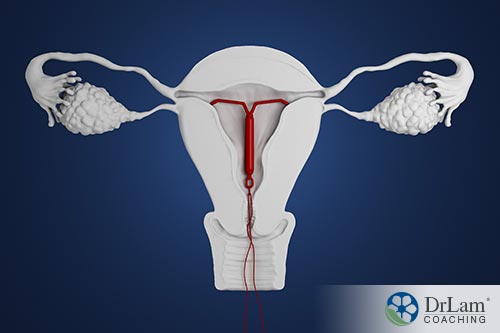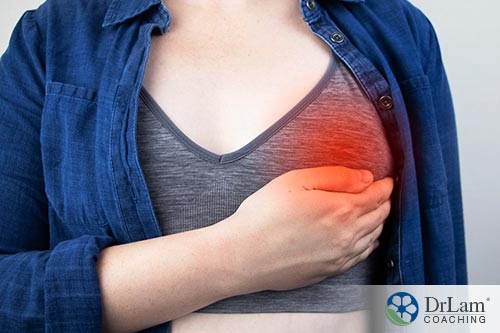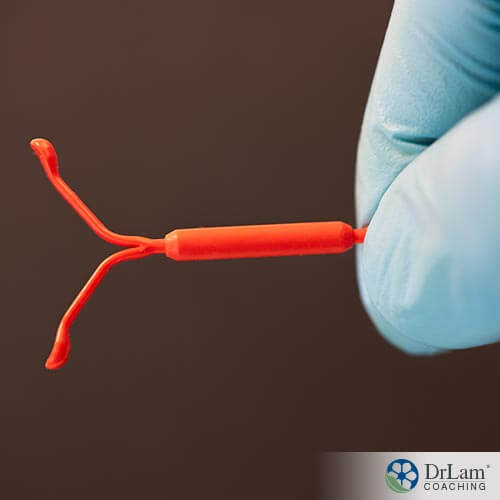 While birth control is a very useful and important part of overall health, choosing the right type for you involves knowing how it will affect you - both the benefits and the potential hazards. In this article, we’ll talk about coils or IUDs, which stands for intrauterine devices. These devices are inserted into the uterus and they remain there, possibly for years, until you take them out. We’ll pay special attention to IUD risks of hormonal IUDs, as not many women are aware of them.
While birth control is a very useful and important part of overall health, choosing the right type for you involves knowing how it will affect you - both the benefits and the potential hazards. In this article, we’ll talk about coils or IUDs, which stands for intrauterine devices. These devices are inserted into the uterus and they remain there, possibly for years, until you take them out. We’ll pay special attention to IUD risks of hormonal IUDs, as not many women are aware of them.
IUDs are t-shaped and around the size of a quarter. They're coated with a substance that prevents pregnancy. They have a few benefits worth mentioning, such as:
There are two types of IUDs – the copper ones and the hormonal ones. Copper-coated IUDs repel sperm, since sperm cells don’t respond well to the substance. Hormonal IUDs make your body believe it is pregnant. So your cervical mucus will thicken, making it more difficult for sperm to get through. They also sometimes stop the release of eggs from your ovaries, so sperm have nothing to fertilize. This is similar to what contraceptive pills do, although with different concentrations of hormones.
We’ll focus on hormonal IUD risks, as any hormonal birth control relies on changing your natural hormone cycles. And that comes with consequences. Different concentrations and placements of these hormones will have different effects.
Hormonal IUDs are covered with progestin, which is a synthetic form of progesterone. Progesterone is one of the two major female sex hormones, even though they also exist in men, but in much smaller concentrations. The other major hormone is estrogen. And for optimal health, these two hormones work to balance each other out, rising and falling according to a cycle.
A woman’s hormone balance is one of the foundations of her health and vitality. If your hormones are balanced and your cycle is running smoothly, you can feel it. Your energy levels and mood are good, your appetite is healthy, and you just feel better. Even when you have your period, it seems like everything is working well.
But when the balance is off, you can feel off in different ways. Some ways don’t even have to do with PMS or symptoms related to your reproductive system at all. And that is where IUD risks come in – they can throw the balance between your hormones off. Just like the pill, but slightly differently.
IUDs are touted as extremely safe, maybe even safer than the pill. The amount of progesterone coating them is quite low compared to the pill. But there is a difference. The hormones the pill releases go into your bloodstream, while those in the IUD go straight into uterine tissue. Although the end goal is the same, the side effects can be different. And, actually, one of the biggest IUD risks is the belief that they are so safe that you end up ignoring the warning signs.
One of the main IUD risks is that the progestin on them will affect your body’s natural progesterone production. This happens with pretty much any hormone. If you give your body an external source of a hormone, your brain will think your body is producing enough of it and it will signal to your glands to decrease and eventually stop producing it.
When your natural progesterone production drops, you are at risk of estrogen dominance. This is a very common yet challenging condition that many women face. It’s when the level of estrogen relative to progesterone is higher. These two hormones balance each other out, so when the balance is off you can get issues such as:

Another issue with estrogen dominance and hormone imbalance in general is the conventional treatment options. Many mainstream medical professionals will prescribe hormone replacement as the first course of action, which can actually exacerbate the body’s slowed production of that hormone. This can lead to a balancing act of continual hormone replacement – high estrogen is counteracted with increasing your progesterone dose, which is then counteracted with increasing estrogen. Then, if your thyroid starts to suffer, you add on some thyroid replacement as well.
This is why we are very careful with our clients when it comes to hormone therapy or using pro-hormones. In some special cases, we may use natural hormones, but only for a short while, until our clients are in a stronger and healthier state.
Stress comes in many forms – it can be mental/emotional or physical. Physical stressors include things like a bad diet, a sedentary lifestyle, exposure to toxins, or recurring infections. Hormone imbalance is also a huge physical stressor, and it impacts you physically and emotionally as well.
Your reproductive glands are a component of your Hormone Circuit. The Hormone Circuit is one of six circuits of organs and systems that work together to fight stress in what’s called the NeuroEndoMetabolic (NEM) Stress Response. You can think of your NEM as a kind of global response to stress. The other five circuits are the Bioenergetics, the Cardionomic, the Neuroaffect, the Inflammation, and the Detoxification circuits.
The Hormone Circuit is also composed of your thyroid and adrenal glands. All three hormone-releasing components get their orders from the control center in the brain – the hypothalamus and pituitary gland. As soon as that control center senses the presence of stress, it activates a kind of hormone cascade that results in either the activation or deactivation of a gland.
With the adrenal glands, they are prompted to release cortisol, your body’s main anti-stress hormone. On the other hand, if you’re facing stress, the body doesn’t need or want reproductive activity, so it lowers the release of sex hormones. That’s why you can lose your libido when you are stressed at work, for example.
All three Hormone Circuit components also affect each other. When the balance of one hormone is disrupted, it can also negatively affect the others. That’s why IUD risks don’t just have to do with your reproductive system, but affect your thyroid, metabolism, and adrenal glands as well. Estrogen dominance can lead to Adrenal Fatigue Syndrome (AFS), and AFS can lead to thyroid dysregulation, as an example.
AFS is a condition you can develop when your stress has become chronic. Chronic stress makes your adrenals work overtime to produce the needed cortisol to fight the stress. But after a while, they get exhausted and their cortisol output drops.
An IUD that causes hormone imbalance and its consequences can result in AFS, as it is a stress on the body that the adrenals have to deal with. And the reverse can also happen: AFS can cause hormone imbalance, including estrogen dominance, which can then be worsened by the use of an IUD.
Symptoms of AFS include fatigue, sleep disturbances, brain fog, weight gain, anxiety, mild depression, hair loss, dry skin, hypoglycemia, salt and sugar cravings, unstable blood pressure, lowered immunity, food and drug sensitivities, loss of libido, PMS, infertility, and other hormone imbalances. It can even lead to irregular periods, missed periods, and amenorrhea.
Let’s take one of these symptoms and see how it relates to IUD risks and also how it goes beyond Hormone Circuit issues into overall NEM dysregulation.
 Using an IUD may change your hormones so that you miss some periods or even just stop having them. Some women might think that’s good, especially if they really suffered from PMS before. But periods are a natural and healthy process that helps your body detoxify.
Using an IUD may change your hormones so that you miss some periods or even just stop having them. Some women might think that’s good, especially if they really suffered from PMS before. But periods are a natural and healthy process that helps your body detoxify.
When your body can’t get rid of toxins in the ways it was used to doing, for example through your period, these toxins can build up in your system. If your uterine walls are constantly thick and start accumulating these unwanted substances, your Detoxification Circuit and Inflammation Circuit both take a hit. They overwork trying to get rid of these toxins, while toxicity levels still increase, causing more inflammation and congestion.
Symptoms of elevated toxicity levels in the reproductive system include fatigue, weight gain, anxiety, depression, reduced blood flow to the area, skin problems, hair issues, and nail issues, to name a few. When your body has too much inflammation and toxins, you also become more sensitive to foods and drugs you may not have been sensitive to before.
This all then increases the stress levels you’re facing, which puts more pressure on your adrenals, worsening your AFS and in turn worsening your Hormone Circuit dysregulation.
If you suspect you’ve been affected by the IUD risks above, it’s very important to get professional guidance. Even if you remove the IUD, the imbalance in your Hormone Circuit it caused may linger on. And if you have more advanced AFS, for example, recovery will not come on its own. You’ll need a plan that is suited to your specific condition and needs.
A holistic plan to rebalance hormones should include diet, supplements, gentle forms of exercise, sleep hygiene practices, stress management techniques, and maybe even temporary natural hormone therapy.
But you’ll have to be quite discerning with the healthcare you seek. If you end up addressing the symptoms rather than the root cause, your hormone issues will only worsen.
For example, synthetic hormones can actually deplete nutrients that your body uses to metabolize these excess hormones. Those include B vitamins, calcium, chromium, magnesium, and zinc. So not only can this cause nutrient deficiencies, but those deficiencies aggravate your hormone imbalance as well. You should test for these deficiencies and address them in the diet and supplementation part of your recovery plan.
This doesn’t mean you should start loading up on supplements of these nutrients, though. While supplements are important to use where it’s helpful, if you’re not careful, you can get paradoxical reactions and even adrenal crashes.
 IUD risks can sometimes be quite confusing. The symptoms you can get from the hormone imbalances they cause may not seem like an IUD issue at all. Doctors may misdiagnose them as mental health problems, thyroid dysfunction, or even a food sensitivity that you don’t actually have. That can lead to the wrong treatment and barely any symptom relief.
IUD risks can sometimes be quite confusing. The symptoms you can get from the hormone imbalances they cause may not seem like an IUD issue at all. Doctors may misdiagnose them as mental health problems, thyroid dysfunction, or even a food sensitivity that you don’t actually have. That can lead to the wrong treatment and barely any symptom relief.
The other problem is that, even if it is correctly diagnosed as a hormone imbalance, many mainstream medical professionals will immediately prescribe hormone replacement as a solution. This can create a cycle of replacing more and more hormones and a dependency on those hormones.
Even if you take the IUD out, your hormone imbalance may have progressed to a point where it requires a full recovery to get back to a healthy state. This is especially the case if it has led to AFS and overall NEM dysregulation.
If you have questions about whether your IUD is causing you problems, or you’re worried about hormone imbalance in general, you can call us for a free initial consultation at (626) 571-1234 to understand our approach to recovery. We have helped thousands worldwide regain their hormonal health and overall wellbeing.
IUDs are very popular and have a generally good safety profile. But there are IUD risks, some of which can be quite dramatic. And they are not limited to the reproductive system alone. They can extend to your metabolism, thyroid, stress response, and mental health as well.
